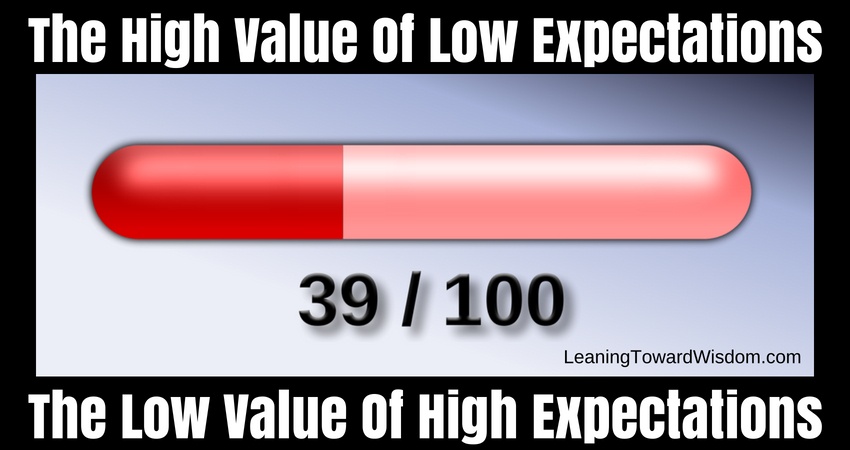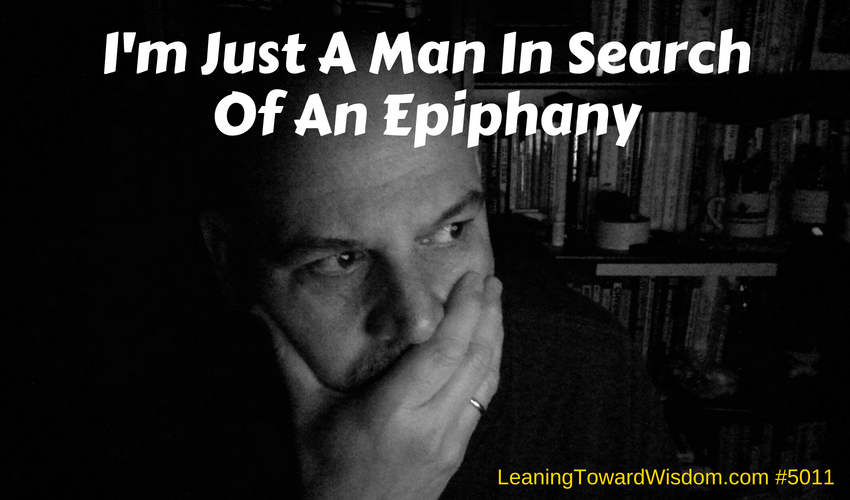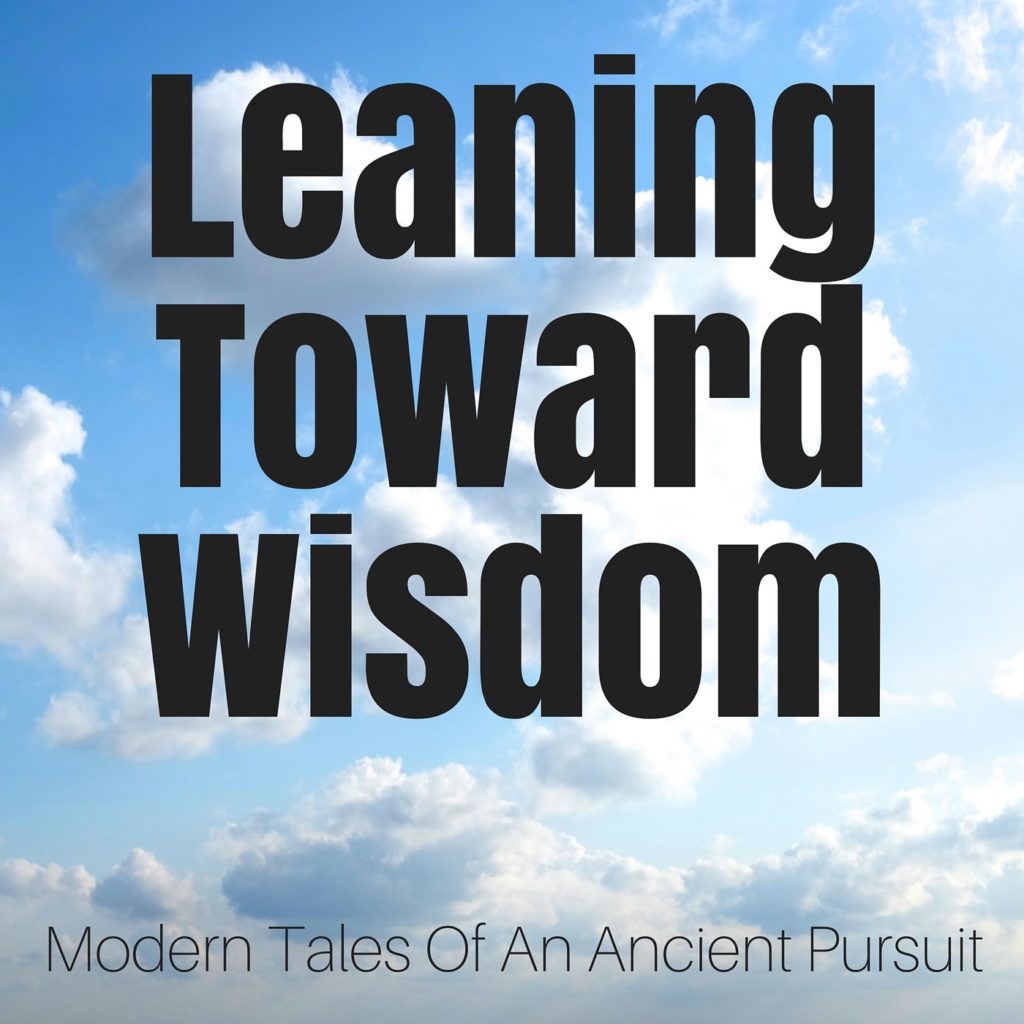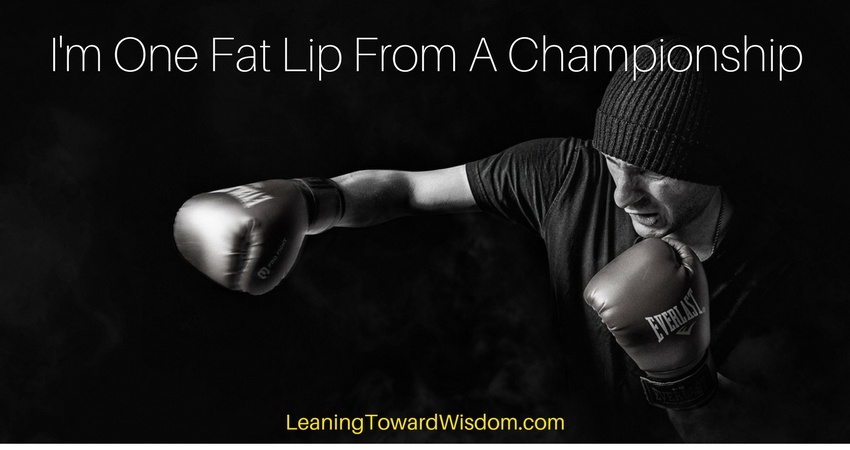Podcast: Play in new window | Download (Duration: 7:17 — 6.9MB)
Subscribe: Apple Podcasts | Spotify | iHeartRadio | Email | | More
Rosanne Barr got stupid. Again. And the people lost their minds over it. ABC canceled her TV show, which was drawing millions of viewers each week.
A Philly Starbucks called cops on two men. And people lost their minds. Yesterday Starbucks closed for company-wide training, losing $12 million.
The NFL and the national anthem continue to be in the news. And people are still losing their minds about it.
A video shows a cop being rough with a teenager. And people go ballistic.
A sportscaster doesn’t pander to his college alma mater on the air. People go nuts and he’s forced to move his family. To another town.
Just today, there’s this. A story from The Telegraph about people who wear reading glasses.
Researchers at the University of Edinburgh analysed the genetic data of more than 44,480 people.
They found that, overall, those who were more intelligent were nearly 30 per cent more likely to have genes indicating they require reading glasses than those who scored poorly.
This is sure to cause riots among non-reading glass wearers who will likely feel bullied, assaulted, victimized by the researchers.
Chris Long, the Philadelphia Eagles player, posted a tweet a few days ago that got some hockey folks riled up.
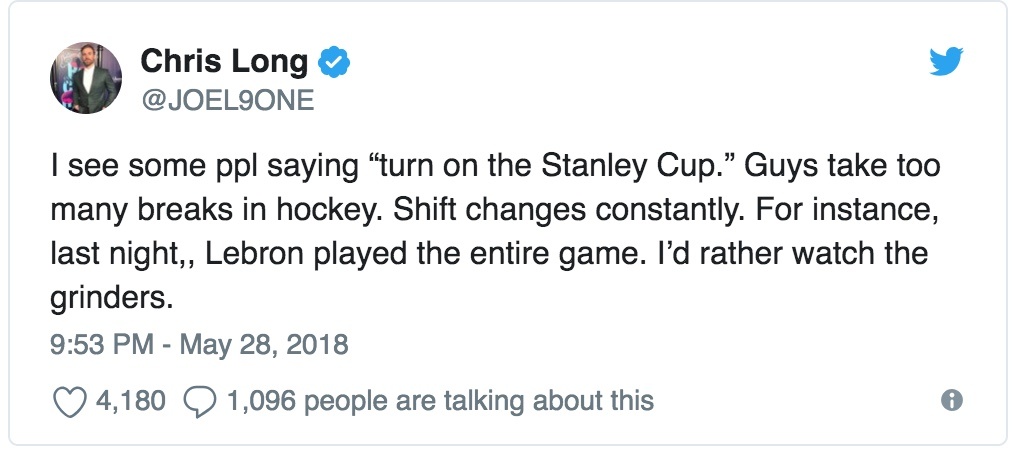
I’m a serious hockey fan. I’m also a serious unfan of the NBA. But I’m also fond of Chris Long.
I wasn’t offended. Suppose the guy hates hockey and loves basketball. And that affects me how? And I would want to care because…?
The Internet was filled with people who took offense to Long’s tweet, not knowing one thing about what was really happening. Namely, that Chris Long was provoking people knowing full well that hockey players and the NHL is a tough game. It was a joke. And the joke was on the overly sensitive nimrods who reacted. You can read more about it all here. Or just do what many people do. Jump to a conclusion that suits you.
It just goes on. And on. And on. And on.
Right is right. Always.
Wrong is wrong. Always.
The problem is we’ve lost our way. We’d rather jump to conclusions with our knee-jerk reactions so we can harshly judge somebody. Empathy? Who’s got time for it? We’re too busy shouting ugly names at people. Calling people out.
Just about every network seems to have some late night funny person who drones on and on about the government, the White House, the President, or some celebrity who made a foolish move. The sheer number of these shows and the fact they remain on the air proves to me that somebody is watching. Networks are willing to pay these folks for doing what they do because it’s profitable. Which means people tune in. I may be the odd man out because I don’t find very many of them entertaining at all. For me, they’re the canaries in the coal mine of our culture’s lust for crushing people so we can feel better about ourselves.
When I was a kid playing football piling on was a penalty. Later it became known as a late hit. But we’d raze the guy who piled on. The person who wasn’t in the play, but wanted to get in on it anyway. That’s what all this behavior reminds me of. Folks who aren’t involved, but want to be involved. I wonder how much of that is happening. How many people are barking and howling at the moon of foolishness from the behavior of others just so they can get in on the action? And for what reason? So they’ll appear as more righteous? More morally upright?
If a harsh judgment of foolish or poor behavior was the only thing needed for wisdom, then we’d all be as wise as Solomon. Even Solomon veered away from God and in the end, he realized what was important. Reviling in his own bad choices, or the bad choices of others wasn’t the conclusion he reached. You can read his conclusion in Ecclesiastes 12:13, 14.


How Can You Help The Podcast?
- Subscribe at iTunes | Stitcher
- Leave us a review at iTunes
- Pick your favorite way to support us financially
- Join the conversation at our Facebook group
- Tell your friends. Promote the shows on social media.


